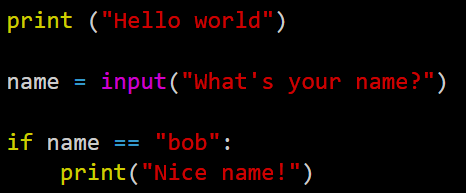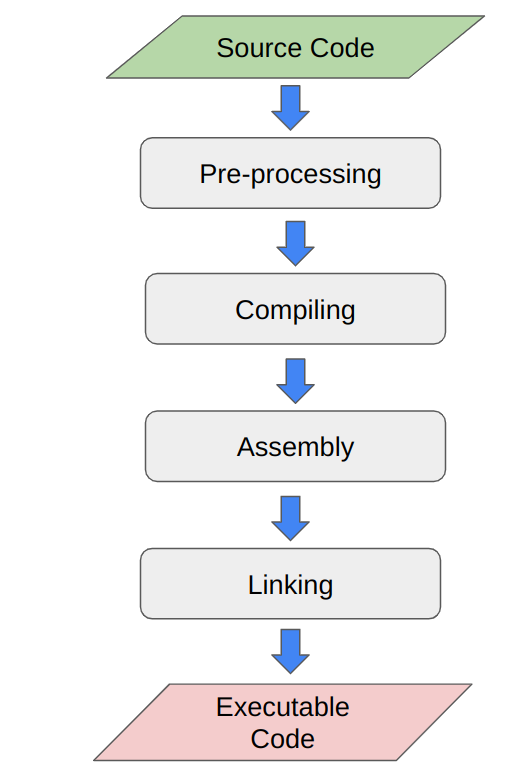

Program code, often referred to simply as "code," is a set of instructions written in a specific programming language to instruct a computer on how to perform a task or solve a problem.
Program code must be written using the correct syntax, otherwise the computer will not be able to interpret the code and execute the instructions.
Syntax rules are vital in programming, governing how code is structured for computers to understand. Similar to grammar in language, these rules ensure accurate communication between programmers and machines. Proper syntax is crucial for error-free, readable, and functional code, making it a cornerstone of effective programming.
Program code written with incorrect syntax will result in a syntax error.
What is the purpose of syntax in program code?
What happens if there is a syntax error in program code?

When program code is executed it needs to be converted into binary machine code in order for the machine process the instructions. Depending on the programming language this is the job of either a translator, compiler or interpreter.
In order to compile the code it goes through a number of steps, which depending on the language might include:
Which of the following represents program code?